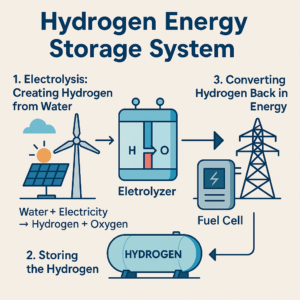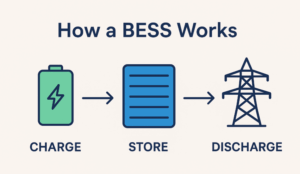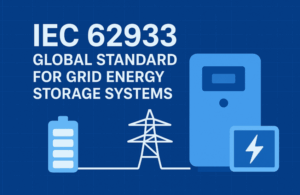How solar energy can reduce carbon emissions
The issue of climate change is one of the most pressing issues facing humanity today. The burning of fossil fuels is the primary cause of greenhouse gas emissions that are leading to global warming and climate change. To address this issue, we need to transition to cleaner forms of energy, and solar energy is a viable option. In this blog post, we will discuss how solar energy can reduce carbon emissions and why it is an essential component of the fight against climate change.
What is Solar Energy?
Solar energy is a renewable source of energy that is generated by capturing the energy from the sun’s rays. The technology used to capture this energy is called a solar panel, and it is made up of photovoltaic cells. These cells convert the sun’s energy into electricity that can be used to power homes, businesses, and other applications.
How does Solar Energy reduce Carbon Emissions?
Solar energy can reduce carbon emissions in several ways. First, solar energy does not emit any greenhouse gases during its production, unlike traditional fossil fuels. Second, solar energy does not require any fuel to be burned to produce electricity, so it does not emit any carbon dioxide or other harmful gases into the atmosphere.
Third, solar energy can be used to power electric vehicles, which can help to reduce carbon emissions from transportation. Electric vehicles powered by solar energy emit no carbon emissions at all, making them an excellent option for reducing carbon emissions from transportation.
Fourth, solar energy can be used to power homes and businesses, reducing the need for traditional power plants that rely on fossil fuels. By reducing the demand for fossil fuels, we can reduce carbon emissions and slow down the pace of climate change.
Finally, solar energy can be used to power large-scale projects, such as solar farms or utility-scale solar power plants. These projects can provide large amounts of clean, renewable energy that can be used to replace traditional fossil fuel power plants.
Benefits of Solar Energy
Solar energy has several benefits over traditional fossil fuels. First, solar energy is a renewable source of energy that will never run out. Fossil fuels, on the other hand, are finite resources that will eventually run out. By transitioning to solar energy, we can ensure that we have a sustainable source of energy for the future.
Second, solar energy is cleaner than traditional fossil fuels. Solar energy does not emit any greenhouse gases during its production, which means that it does not contribute to climate change. Solar energy also does not produce any harmful pollutants, such as sulfur dioxide, nitrogen oxides, or particulate matter.
Third, solar energy can save money. Once a solar panel system is installed, it can produce free electricity for decades, reducing the need for expensive electricity from traditional power plants. This can save homeowners and businesses thousands of dollars over the life of the system.
Fourth, solar energy can create jobs. The solar industry is growing rapidly, and as more and more people transition to solar energy, more jobs will be created in the industry. This can help to stimulate the economy and provide new job opportunities for people in various fields.
Challenges of Solar Energy
While solar energy has many benefits, it also has some challenges. First, solar energy is intermittent. Solar panels can only produce electricity when the sun is shining, which means that they cannot provide a consistent source of power. This can be mitigated through the use of energy storage systems, such as batteries, which can store excess energy produced during the day for use at night or during cloudy weather.
Second, solar panels require space. Solar panels require a large amount of space to generate enough electricity to power a home or business. This can be challenging for people who live in urban areas or who have limited roof space.
Third, solar panels require upfront costs. While solar energy can save money in the long run, the initial cost of installing a solar panel system can be significant. This can be a barrier for many homeowners and businesses who may not have the resources to invest in a solar panel system.
Fourth, the production of solar panels requires the use of rare earth metals, which can have environmental impacts. The mining and processing of these metals can generate waste and pollution, which can have negative impacts on the environment and local communities.
Conclusion
In conclusion, solar energy is a vital component in the fight against climate change. By transitioning to solar energy, we can reduce our reliance on fossil fuels and reduce carbon emissions, which can slow down the pace of climate change. Solar energy has many benefits, including its renewable nature, its cleanliness, and its potential to save money and create jobs. While solar energy does have its challenges, such as intermittency and upfront costs, these challenges can be overcome through innovation and investment in the technology. Overall, solar energy is a crucial tool in our efforts to build a sustainable future for ourselves and future generations.






